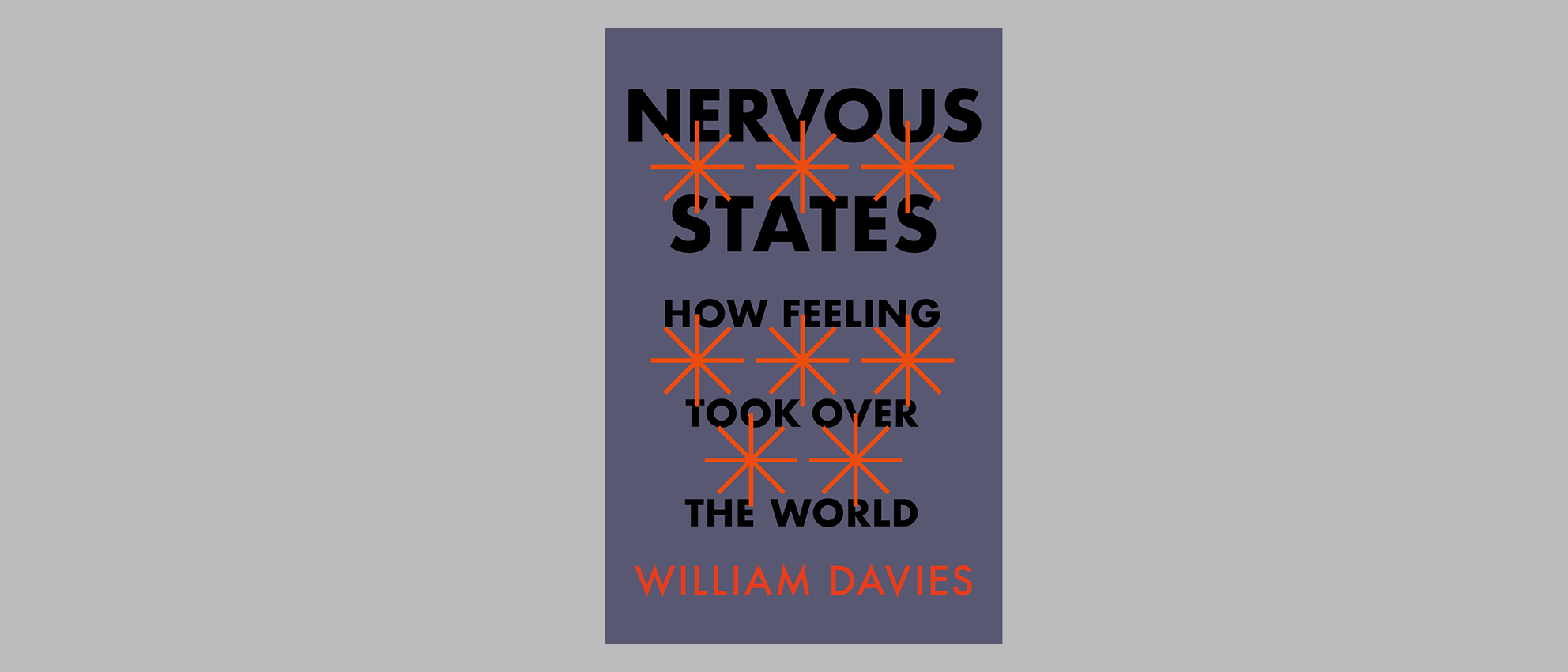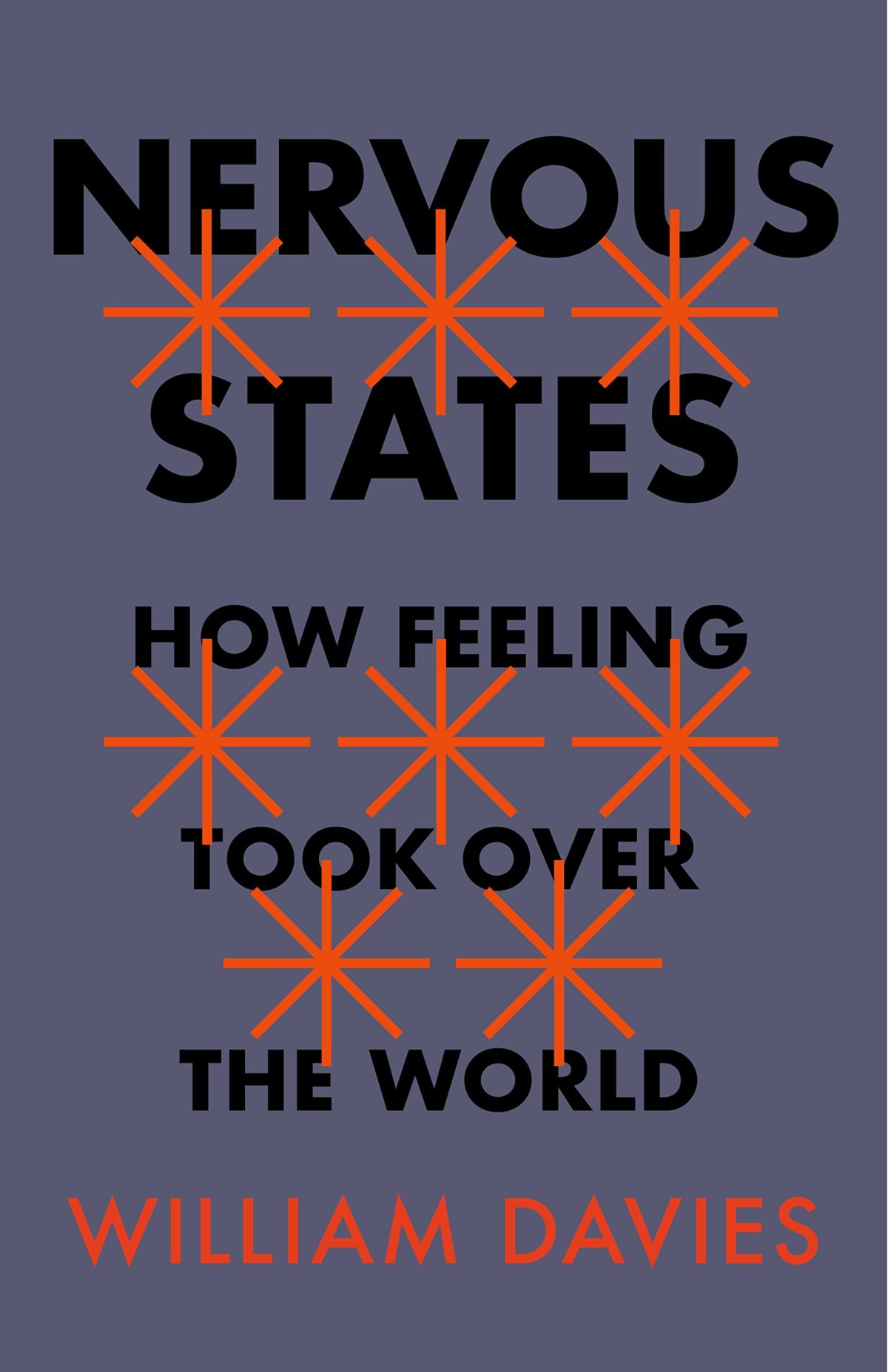
‘I know it, but I don’t feel it,’ is a phrase sometimes used by patients in cognitive therapy, when they want to make clear to their therapist that they do know what the problem is, but aren’t able to feel any better despite this knowledge. Apparently, knowing what the problem is regarding one’s personal relationships, self-esteem or bad mood doesn’t necessarily relieve any of the bad feelings that have been haunting these patients. William Davies, author of Nervous States: How feeling took over the world might argue that the opposite is true for the global political climate that governs the West nowadays: ‘I feel it, but I don’t know it.’
For psychologists, the distinction between knowing and feeling is long outdated, as a sharp line between ‘ratio’ and ‘emotion’ is hard to maintain in the long run. For Davies however, it is apparent that we have traded one cognitive system for another. We have entered into times which can be characterized as ‘nervous states.’ Arguments posited by experts are no longer naturally finding their way into politics, policy and towards the public. Studies of scientists are valued as ‘just another opinion’ and political campaigns that we have seen in recent years are built on triggering fear instead of trying to persuade the public by using rational arguments. Campaigns for Brexit and for Trumps election have provided clear illustrations of how arguments based on feelings came to replace factual ones. Davies tries to answer the question: How do we move along, now we don’t trust facts, statistics and experts anymore?
According to Davies, the nervous states we find ourselves in today have originated in the grey area between two pairs of ancient contradictions. Expert knowledge being traded for knowledge dictated by feelings, is due to the grey area that appeared between the mind (ratio) and the body (feeling). In the public debate, people only use one of these two systems, and those who declare to use their minds to construct arguments disregard arguments built on feelings, and vice versa. Another grey area has appeared between war and peace. In a historical sketch Davies shows how most knowledge, ideas and inventions were created to keep us on the good side of the war-peace continuum. Since knowledge seems to have been disregarded more as politicians publicly subvert it – like Trump denying global warming – they also disregard the peace that this knowledge helps to keep. Combined with the declared wars on terrorism and drugs (Hillary Clinton even toyed with the idea of declaring war on global warming) the language of warfare has become a clear component of our daily reality. The consequence is: Western citizens don’t longer know if they are actually living in times at war or at peace.
In this compelling book, Davies takes you on a tour along history, philosophy, psychology, and politics. He manages to tie all these disciplines together. However, due to the amount of different subjects, not every discipline is thoroughly deepened. But still Davies makes a convincing case for a new politics in which we will need the body as well as the mind, and peace as well as ‘war’: Ratio as well as feelings, soft as well as hard tactics to deal with the problems our society is facing today. According to Davies, this is the only way out of our current nervous affairs. So maybe, one day, we will be able to say: ‘I feel it, because I know it.’
This book is available at your local bookshop or online starting from €16,99.

‘I know it, but I don’t feel it,’ is a phrase sometimes used by patients in cognitive therapy, when they want to make clear to their therapist that they do know what the problem is, but aren’t able to feel any better despite this knowledge. Apparently, knowing what the problem is regarding one’s personal relationships, self-esteem or bad mood doesn’t necessarily relieve any of the bad feelings that have been haunting these patients. William Davies, author of Nervous States: How feeling took over the world might argue that the opposite is true for the global political climate that governs the West nowadays: ‘I feel it, but I don’t know it.’
For psychologists, the distinction between knowing and feeling is long outdated, as a sharp line between ‘ratio’ and ‘emotion’ is hard to maintain in the long run. For Davies however, it is apparent that we have traded one cognitive system for another. We have entered into times which can be characterized as ‘nervous states.’ Arguments posited by experts are no longer naturally finding their way into politics, policy and towards the public. Studies of scientists are valued as ‘just another opinion’ and political campaigns that we have seen in recent years are built on triggering fear instead of trying to persuade the public by using rational arguments. Campaigns for Brexit and for Trumps election have provided clear illustrations of how arguments based on feelings came to replace factual ones. Davies tries to answer the question: How do we move along, now we don’t trust facts, statistics and experts anymore?
According to Davies, the nervous states we find ourselves in today have originated in the grey area between two pairs of ancient contradictions. Expert knowledge being traded for knowledge dictated by feelings, is due to the grey area that appeared between the mind (ratio) and the body (feeling). In the public debate, people only use one of these two systems, and those who declare to use their minds to construct arguments disregard arguments built on feelings, and vice versa. Another grey area has appeared between war and peace. In a historical sketch Davies shows how most knowledge, ideas and inventions were created to keep us on the good side of the war-peace continuum. Since knowledge seems to have been disregarded more as politicians publicly subvert it – like Trump denying global warming – they also disregard the peace that this knowledge helps to keep. Combined with the declared wars on terrorism and drugs (Hillary Clinton even toyed with the idea of declaring war on global warming) the language of warfare has become a clear component of our daily reality. The consequence is: Western citizens don’t longer know if they are actually living in times at war or at peace.
In this compelling book, Davies takes you on a tour along history, philosophy, psychology, and politics. He manages to tie all these disciplines together. However, due to the amount of different subjects, not every discipline is thoroughly deepened. But still Davies makes a convincing case for a new politics in which we will need the body as well as the mind, and peace as well as ‘war’: Ratio as well as feelings, soft as well as hard tactics to deal with the problems our society is facing today. According to Davies, this is the only way out of our current nervous affairs. So maybe, one day, we will be able to say: ‘I feel it, because I know it.’




